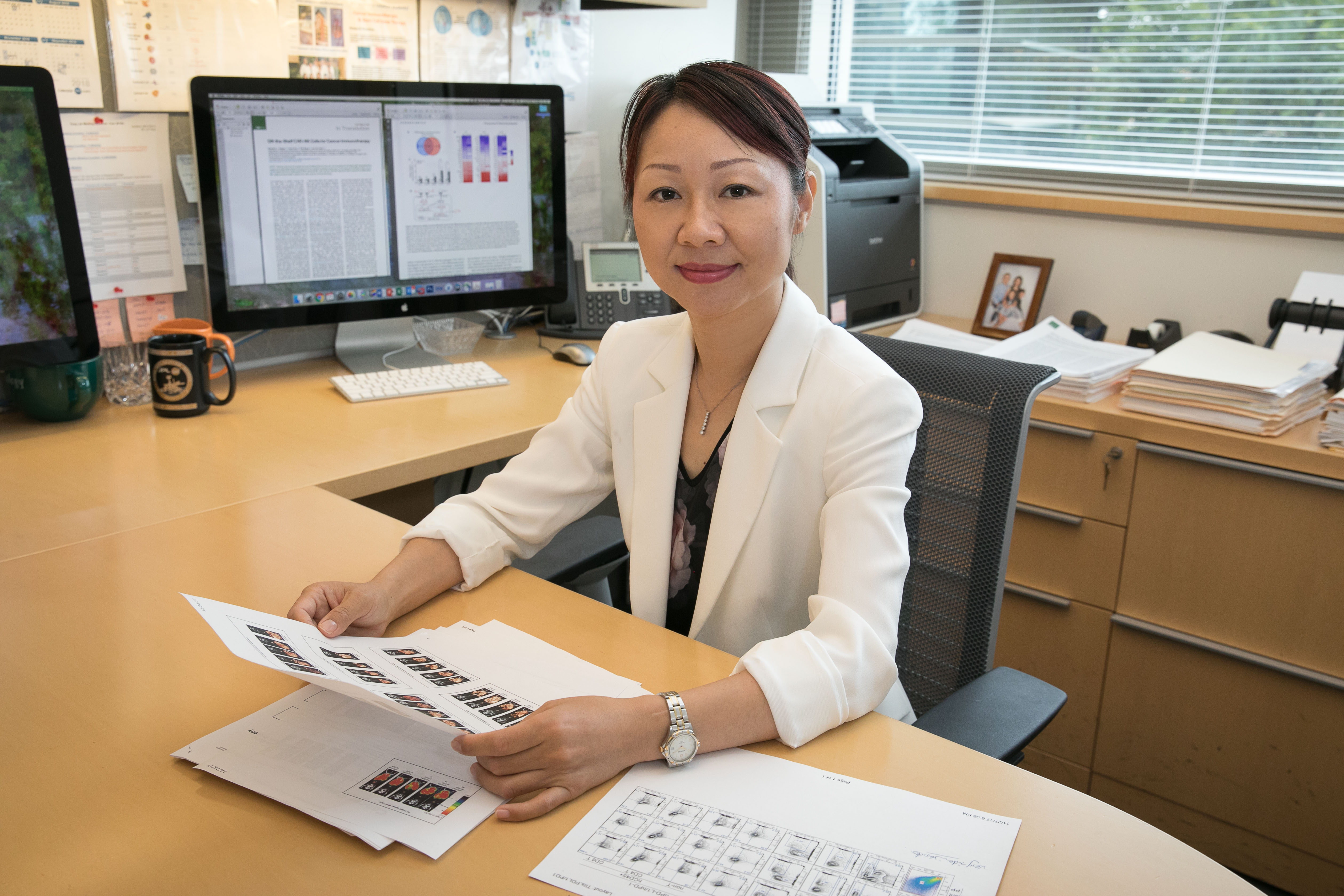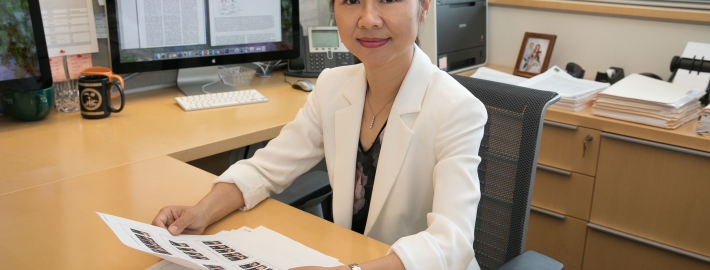How a UCLA scientist is using stem cells to take on COVID-19

Lili Yang (Photo Credit: UCLA Broad Stem Cell Research Center)
As the COVID-19 pandemic rages on, UCLA researchers are rising to the occasion by channeling their specialized expertise to seek new and creative ways to reduce the spread of the virus and save lives. Using years’ — or even decades’ — worth of knowledge they’ve acquired studying other diseases and biological processes, many of them have shifted their focus to the novel coronavirus, and they’re collaborating across disciplines as they work toward new diagnostic tests, treatments and vaccines.
Here’s a look at one project in which UCLA scientist Lili Yang, associate professor of microbiology, immunology and molecular genetics in the UCLA College is using stem cells — which can self-replicate and give rise to all cell types — to take on COVID-19.
Invariant natural killer T cells, or iNKT cells, are the special forces of the immune system. They’re extremely powerful and can immediately recognize and respond to many different intruders, from infections to cancer.
Yang is testing whether iNKT cells would make a particularly effective treatment for COVID-19 because they have the capacity to kill virally infected cells, offer protection from reinfection and rein in the excessive inflammation caused by a hyperactive immune response to the virus, which is thought to be a major cause of tissue damage and death in people with the disease.
One catch, though, is that iNKT cells are incredibly scarce: One drop of human blood contains around 10 million blood cells but only around 10 iNKT cells. That’s where Yang’s research comes in. Over the past several years, she has developed a method for generating large numbers of iNKT cells from blood-forming stem cells. While that work was aimed at creating a treatment for cancer, Yang’s lab has adapted its work over the past few months to test how effective stem cell–derived iNKT cells could be in fighting COVID-19. With her colleagues, she has been studying how the cells work in fighting the disease in models of SARS-CoV-2 infection that are grown from human kidney and lung cells.
“My lab has been developing an iNKT cell therapy for cancer for years,” Yang said. “This means a big part of the work is already done. We are repurposing a potential therapy that is very far along in development to treat COVID-19.” Read more.
For more on campus-wide research efforts related to COVID-19, visit: https://newsroom.ucla.edu/releases/stem-cell-research-covid-19




